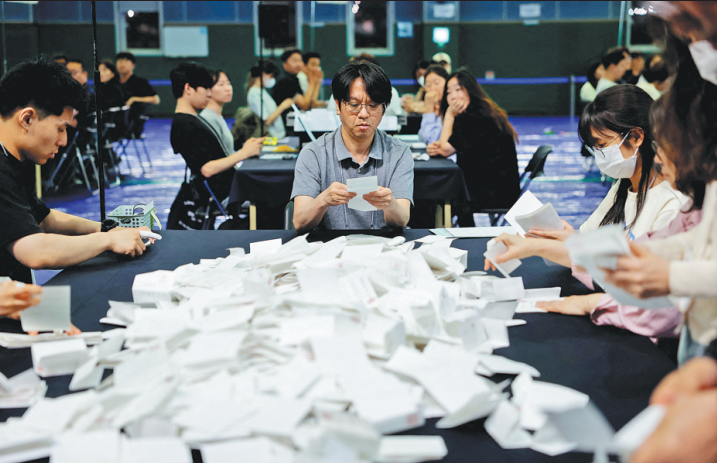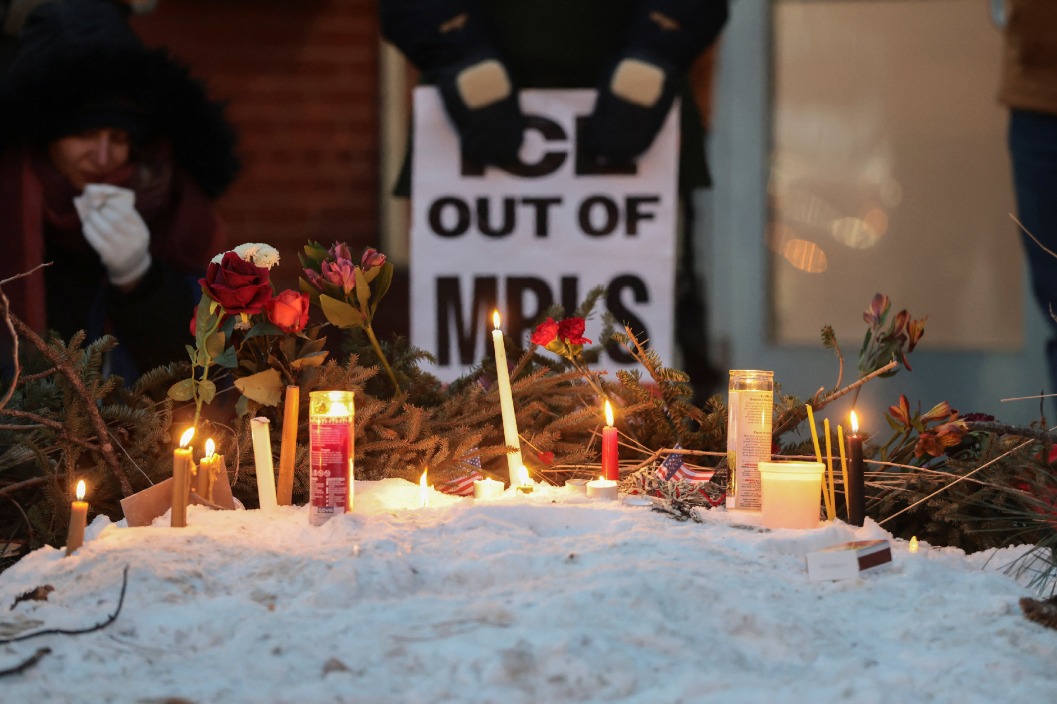S. Korean voters seek political stability with a strong turnout
Incoming president faces series of challenges after months of turmoil


More than 35 million South Korean voters cast their ballots on Tuesday to elect a new President with liberal candidate Lee Jae-myung emerging as the most likely winner in exit polls.
In an election that aimed to end months of political vacuum following former president Yoon Suk-yeol's botched bid to impose martial law, the voter turnout was 79.4 percent, compared with 77.1 percent in 2022, tentative results from the National Election Commission showed on Tuesday.
With 45 percent of the votes counted at 11:52 pm, Lee of the opposition Democratic Party won 49.10 percent and his archrival Kim Moon-soo of the conservative People Power Party garnered 42.55 percent, according to the National Election Commission.
Local broadcaster JTBC and three terrestrial broadcasters said on Tuesday that Lee would be elected president with certainty.
Lee made a short speech to supporters before making his way to the parliamentary building.
The presidential race involved five candidates after two dropped out during the campaigning phase, with Lee and Kim being the frontrunners.
This is Lee's second showing as a presidential candidate. In 2022, he lost to Yoon by 0.7 percentage points, the narrowest margin in South Korean history.
Kim is a former labor minister in the Yoon administration.
The snap election came exactly six months after Yoon made a martial law declaration that plunged the country into political turmoil. He was suspended from duty after being impeached by the Parliament in December, and was ousted in April by the Constitutional Court.
Yoon and his wife, Kim Keon-hee, accompanied by security personnel, cast their ballots at a polling station in Seoul in the morning. They did not answer questions from the media.
"Through today's election on June 3, South Korea will overcome the destruction of democracy that began on Dec 3 in accordance with the Constitution and the rule of law," National Assembly Speaker Woo Won-shik wrote on Facebook after the voting.
Woo said he hopes South Korea will return to the path to stability and prosperity after the election.
In the live TV broadcast, Democratic Party members erupted in applause and cheers after the voting wrapped up, while members of the People Power Party remained calm.
Because the snap election was caused by a leadership vacancy, the new president will immediately begin his term after the National Election Commission confirms the voting results on Wednesday morning, without the 60-day transition period, Yonhap News Agency reported.
The inauguration ceremony will be held briefly at the National Assembly around noon, during which the new president will deliver the inauguration speech and announce the new administration's policies.
The incoming administration will have to deal with a series of political and economic challenges.
The country's GDP growth is projected to weaken to 1 percent this year before picking up to 2.2 percent next year, according to a report published by the OECD on Tuesday.
"Increased tariffs and uncertainty are set to hold back export growth and weaken business investment," the report said, adding that a prolonged slowdown in key trading partners and spiraling protectionism could further strain South Korea's trade-dependent economy.
Despite a bilateral free trade agreement since 2012, South Korea is facing a 25 percent "reciprocal tariff" by the United States, together with sectoral tariffs such as the new 50 percent import taxes on steel and aluminum.
South Korea has agreed with the US to reach a "July package" deal on trade after the new administration is formed.
Compared with other major economies, the cumulative negative effect of US tariffs on South Korea's GDP growth for 2025-26 is expected to be among the most severe, Kim Jinwook, an economist at Citigroup, told The Korea Herald.
In an interview with Arirang News, voter Shin Soo-hyun said he hopes the election winner can keep at least one of his campaign pledges.
Xinhua contributed to this story.
kelly@chinadailyapac.com































